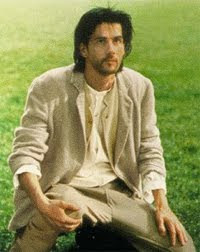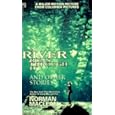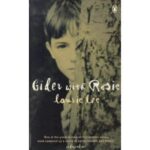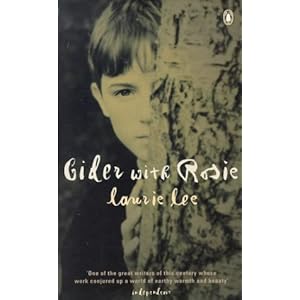
Last July, I spent a couple of days in Odense, the birthplace of Hans Christian Andersen–which he left as soon as he could.
Hans Christian Andersen (all three are very common and popular Danish names) was a freak genius, born to a cobbler and a (mildly alcoholic) washerwoman.
Their simple one room cottage had few books–Shakespeare, Grimm and 1001 Nights– but these the pre-teen Andersen soon almost memorized. The inmates of the mental asylum where his grandmother worked told him Danish folk tales. Even in primary school, he performed Shakespeare plays he’d memorized, with a little toy theatre with puppets, whose clothes he had designed himself. And wrote plays, poems, stories.
School was, nevertheless, full of humiliation because of his ugly, homely appearance, his large nose, and unmasculine pursuits.
His father died when he was eleven and he had to help support the family. He was sent to work in a factory, where he was humiliated by having his trousers pulled down (to check if he was a man) and then apprenticed to a tailor.
At 14, he ran away from home to Copenhagen “to become famous” as he told his mother. He approached the luminaries of the day until a composer, Weyse, who had risen from poverty himself, raised money to enable him to study at the Royal Theatre, though the only role he got was as a troll. He studied at the Ballet School but was told that his ugliness and ungainliness would prevent his getting roles.
He wrote a play, aged 17 (his last hope of having anything to do with the theatre he loved), which brought him to the attention of Jonas Collin, a powerful Court official, and financial director of the Royal Theatre, who realized that Andersen was hampered by his lack of formal education. He arranged an educational fund to be paid by the King of Denmark and sent him to a grammar school in Elsinsore with 11 year olds.
The headmaster was abusive, particularly vicious to Andersen whom he ridiculed and humiliated. Particularly crushingly, he forbade him to write, partly because he was dyslexic, (and so struggled with the long, boring days at school), and partly to crush his literary ambitions which he thought were at odds with his humble origins. Andersen thought he was going mad because of the abuse, and had nightmares of this headmaster throughout his life.
Andersen persisted for four years, determined to prove worthy of Collins and the King’s interest, but finally wrote a poem “The Dying Child” which became one of the most famous poems of the century. His headmaster pronounced this rubbish, and abused Andersen so vehemently that an alarmed teacher alerted Collin.
Collin arranged for him to return to Copenhagen, where he was given an attic room, and studied with private tutors.
* * *
A year later, aged just 22, he wrote his first book, A Walking Tour from the Holmen Canal to the Eastern Point of Anger. This book, an early Ulysees, follows a young poet through the streets of Copenhagen over the course of a single night. Unable to find a publisher, he self-published it, and it was a very successful: every copy sold.
Andersen was a prolific and endlessly creative writer, writing travelogues, fairy tales, novels plays, and three memoirs. He is, of course, best remembered for his fairy tales which he started writing in high excitement when he was 29.
* * *
Andersen’s Fairy Tales are rich and many-layered, full of humour, satire, wisdom, sharp observation and, above all, poetry. His stories are a literary melange of Danish folk tales, 1001 Nights, Grimm Fairy Tales, but are earthed and anchored in contemporary Copenhagen. His varied experience in the school of high and low life and hard knocks provided the little intimate realistic detail which make these so charming.
* * *
His writing brought him the things he desired–wealth, the friendship of other writers, entree to high society, travel, and recognition.
There is a bitter-sweet romance and fairy tale about the life of this creator of fairy tales–creative dreams fulfilled, wealth earned, much travel–29 tours of Europe, and the social success and access to high society which Andersen appeared to have craved. He achieved his ambitions and dreams, which so few people do.
“A star of fortune hangs above me,” Andersen once wrote. “Thousands have deserved it more than I; often I cannot understand why this good should have been vouchsafed to me among so many thousands. But if the star should set, even while I am penning these lines, be it so; still I can say it has shone, and I have received a rich portion.”
The star, of course, shone because of his determination and hard work, as well as his genius.
But the wounds of penury, of rejection, humiliation, abuse and exclusion never fully healed. His love, both heterosexual and homoerotic, was always unreciprocated. He was the little mermaid, (Den Lille Havfrau as signs all over Copenhagen tell us) who achieved his dreams at a high price, and then not completely.
* * *
When I was younger, I might have read his life and resolved to work relentlessly to fulfil my own literary dreams. But I now know that while creative and writing dreams fulfilled have their own sweetness, they cannot fill the heart with joy or peace or contentment. For that, I need more than literary dreams fulfilled. For that, I need the Holy Spirit. For that, I need Jesus. For that, I need God himself.
How do I know this? Because I have realized some of my dreams–I’ve studied in the University I wanted to: Oxford; my writing has won prizes and been published; like Andersen, I’ve visited over 29 countries; my little business has been successful; my little blog is growing; I live in the country outside a city I love, Oxford. I am happily married, and have two sweet, gifted children. And all these things have been satisfying.
But their satisfactions do not compare to the times of soaking in the presence of God, of revelling in Scripture, of hearing the voice of God, of prayer.
And while these times spent playing in the fields of the Lord–because of the goodness of God–might help one’s life resemble a fairy tale with a happy ending, they are, in fact, a true fairy tale in themselves.
Little Anita hangs out with God; Little Anita reads the words of God; Little Anita talks to God, and God talks back. What greater fairy tale?










